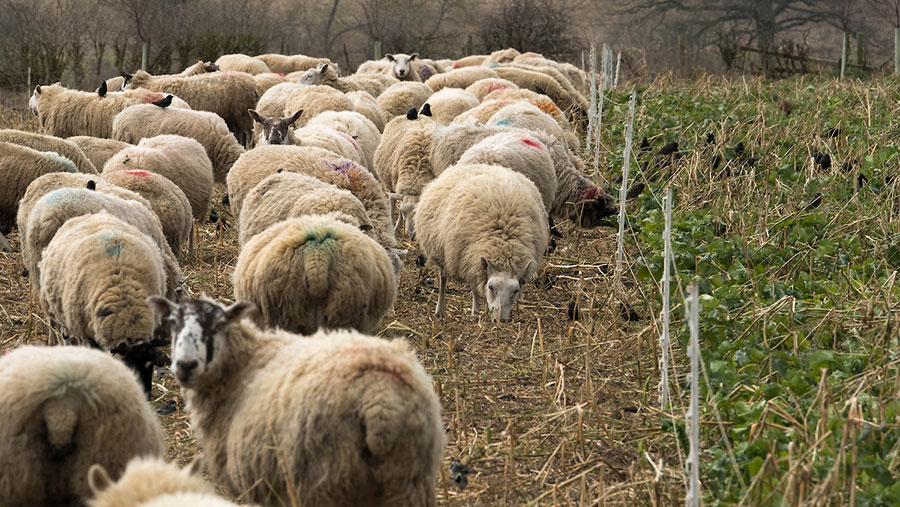Opinion: Don’t let buzzwords put you off farming change
 © Tim Scrivener
© Tim Scrivener At his inaugural address in 1933, US president Franklin D Roosevelt proclaimed: “The only thing we have to fear is fear itself…which paralyses needed efforts to convert retreat into advance.”
He was referring to the economic crisis of the Great Depression, but I feel that these words hold true for us in agriculture today.
British farming must continue its advance along the path to a more sustainable future.
This will bring necessary change that is not to be feared and is in fact vital for the long-term health of our farms, our industry and our planet as we look to more sustainably feed a growing population.
Much of the trepidation about the journey on which we are embarked can perhaps be traced to the unfamiliar buzzwords that are increasingly bandied about to describe the change we are seeing. “Regenerative”, “agroecological”, “silvopasture”, “mob grazing”, “min-till”, “net zero”, “rewilding”.
Confrontational cliques
The issue with such labels is that they can seem alien, intimidating and exclusive – a perception not helped by the sometimes unwelcoming and confrontational cliques that can form around each.
I doubt I’m alone in feeling that my personal journey has only been slowed by the minority of such off-putting, critical people.
See also: All you need to know about regenerative farming
It’s important that we demystify such phrases and realise that they will mean different things on different farms.
We should also appreciate that, for the most part, they simply mean using the techniques and wisdoms that came as second nature to our forebears, such as wider, healthier rotations and the return of organic manures to arable land, plus the benefits of parkland trees and more diverse swards for livestock.
Not such ‘new’ ideas
Many of these supposedly “new” ideas are simply good integrated farm management with which we are all familiar, though perhaps such practices have lapsed in recent decades, years in which a chemical can has been advanced as the solution to every problem.
Not every farm will become a regenerative, net-zero, agroecological exemplar, whatever that means.
But there are things we can all do – from precision application of inputs and metering of grass growth, to the planting of field margins and digging of sedimentation ponds – that are good for the environment and, ultimately, our bottom lines.
This is especially so at a time when we must be building more climate resilience into our farming systems.
It’s also important that we don’t get dogmatic about what sustainable agriculture means. In any reasonable assessment, pesticides and fertilisers will continue (in smaller quantities) to be vital tools, while we must seriously consider the benefits that agricultural biotechnology might bring.
To my mind, this is not antithetical but complementary to regenerative farming principles.
Enhancing competitiveness
Such “sustainable intensification” is best described as enhancing farm competitiveness and the environment side by side. It would be immoral and self-defeating to focus entirely on environmental rehabilitation at the expense of domestic food production.
On this endeavour, the greater our exposure to new ideas, the more comfortable we will become and the more likely to successfully embrace beneficial change.
Each farm will take its own path, blending ideas from many sources and – hopefully – not getting too hung up on or fearful of any one buzzword.
As Rudyard Kipling wrote: “Of all the liars in the world, sometimes the worst are our own fears.”

